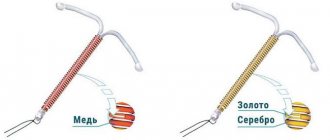Many women in labor refuse to give birth the usual natural way, preferring a cesarean section. Some people make this decision for lack of another option. The situation may require such actions if there is a risk to the life of the mother or child. In this case, surgery is performed immediately. But sometimes this is a consequence of the demands of the mothers themselves. This trend is observed more and more every year.
Surgical delivery is used quite often
How is recovery going?
The recovery period is different for everyone. At first after surgery, of course, the situation for women in labor is approximately the same. During the first 24 hours they are kept in special separate rooms.
Pain after such surgery is normal. Sometimes even on the second day it is impossible to turn on your side, cough or sneeze without feeling pain. Recovery in the future proceeds individually. For some, this is associated with heavy menstrual discharge.
What is the normal discharge rate?
A caesarean section is a surgical procedure. Like any other external action, it affects the body with certain consequences and even complications. Surgery is stressful for the body and its systems. Therefore, heavy first periods are considered normal. This is a response that occurs due to hormonal imbalances, nervous or emotional shock to the body.
For all women, cycle restoration occurs individually
It is important to remember that this formulation is not a rule. From a biological point of view, a person is a purely individual being. Therefore, the adaptation process after a cesarean section is different for all women.
The restoration of the monthly cycle is influenced by many factors. This includes the process of pregnancy and childbirth, age, emotional state of the body, nutrition, environment, environmental factors and much more. This is where the individuality and uniqueness of this period of adaptation comes from.
Only the norm in this case remains unchanged. Regardless of when your period starts, it is as follows: heavy discharge is considered a special case.
If the discharge continues for more than a week or you change the pad every two hours, it’s time to sound the alarm and urgently call a doctor.
Heavy periods after cesarean section
The physiological process of childbirth occurs through the natural birth canal. If there are medical indications and conditions for surgical delivery, obstetricians perform a cesarean section. Through an incision in the abdominal cavity, access to the uterus is gained, it is dissected, and the fetus and placenta are removed.
This intervention accounts for 95% of all obstetric operations. Complications, difficulties, and errors are possible at all stages. Among the postoperative complications that arise, bleeding plays a leading role. Let's consider how the postpartum period changes after such interventions; heavy periods after cesarean section is the norm or a pathology.
Recovery
Reverse changes in a woman’s body associated with pregnancy and childbirth gradually occur over two months after the birth of the baby.
They are determined by the state of the neuroendocrine system, the method of birth of the fetus, and the course of the postpartum period.
During this period of time, the uterus reaches normal size (involution), the placental site heals, and the internal epithelial layer is restored.
This period is accompanied by specific postpartum discharge called lochia. During the first three days after birth, they are bloody in nature, and by the end of the first week they gradually turn into serous-sanguineous. Over the next forty days they turn yellow and stop by the end of the sixth week.
After the operation, the reduction of the uterus proceeds at a slow pace, because the integrity of the muscle fibers, nerve endings, and blood vessels is damaged. The internal surface of the organ is an extensive wound. These changes cause more abundant, prolonged discharge. Involution of the uterus lasts fourteen days longer, and the discharge ends by the end of the eighth to ninth week.
Period
In the first three to four months after childbirth, most healthy women who regularly breastfeed their children do not menstruate. As a result of observations, it was noticed that with good lactation, menstruation may be absent for a year. The timing of the onset of full and regular periods is influenced by a number of circumstances:
- Type of feeding of the baby.
- The state of the reproductive organs and the psychological situation.
- Presence of postoperative complications.
- Hormonal level.
- Stress.
- Quality of the postoperative recovery period.
The longest period of amenorrhea is observed in women with good milk secretion and high concentrations of the milk hormone (prolactin) in the blood plasma. This hormone inhibits the gonadotropic function of the pituitary gland, which does not respond to hypothalamic stimulation - the cyclic production of female sex hormones does not occur.
During 14-20 days after birth, the level of prolactin exceeds its content in non-pregnant women by 30 times, but after 4-12 months of lactation it approaches normal.
The hypothalamic-pituitary system is disinhibited, the menstrual cycle begins against the background of continuous lactation.
Thanks to prolactin, the first menstrual cycle after childbirth turns out to be anovulatory or accompanied by an incomplete second phase.
In subsequent cycles, ovulation occurs and despite lactation, pregnancy may occur. If a woman does not breastfeed after a cesarean section, her period comes 8-9 weeks from the date of the operation. The interval between childbirth and the appearance of ovulatory cycles is approximately 50 days in non-breastfeeding women and more than 100 in lactating women.
Nature of the discharge
Many people note changes in the menstrual cycle and the volume of menstrual blood after childbirth. Heavy periods after cesarean section are not uncommon. The quality and quantity of separated blood is influenced by several factors:
- Contractility of the myometrium (muscular layer of the uterus);
- state of the neurohumoral system;
- the presence of inflammatory processes in the postoperative period;
- indicators of the blood coagulation system;
- presence of physical activity, lifting weights.
Individual fluctuations in the cycle are acceptable within 21-32 days; the volume of blood lost during critical days should not exceed 100 milliliters.
It is very important to know how to distinguish between menstruation and bleeding after a cesarean section; to do this, you need to pay attention to the amount of blood. One pad with 4-5 drops can absorb about 10-15 milliliters of discharge; if 3 pads are completely filled during the day, bleeding can be suspected.
Also, signs of bleeding are considered to be heavy discharge with blood clots, discharge of a bright scarlet color, the duration of menstruation for more than 7 days, deterioration of the general condition in the form of weakness, dizziness.
For women with low hemoglobin levels, normal menstrual blood loss can make them feel worse. These symptoms should be a reason to contact a gynecologist.
An alarming symptom is prolonged bleeding from the genital tract before and after menstruation.
Scanty periods may be a consequence of hormonal disorders, and if they are accompanied by pain, they may be signs of incomplete emptying of the uterus.
Prevention
Women who have undergone a cesarean section must follow simple recommendations during menstruation. Thermal procedures, certain types of food, and physical activity can cause heavy periods after cesarean section. What else should not be done during this period:
- Lift weights.
- Take a hot shower or bath.
- Visit the sauna, solarium, beach.
- Do physiotherapy, massage.
- Take aspirin and other blood thinners.
- Live sexually.
- Use hot seasonings.
- Engage in active sports.
If, despite following these rules, your periods become heavy, you can take medication and consult a doctor. Heavy periods after cesarean section can be a manifestation of gynecological diseases.
Treatment
If the first menstruation after cesarean section is very heavy, you should consult a gynecologist. The choice of drug depends on the presence of lactation; some drugs are contraindicated for nursing mothers. If a woman is breastfeeding, the drugs of choice are:
- Tranexam;
- Ascorutin; Gemaxam.
Non-breastfeeding patients are recommended:
- Pambu;
- Tincture of water pepper;
- Dicynone;
- Vikasol;
- Aminocaproic acid.
In the absence of lactation, the menstrual cycle can be normalized by cyclic intake of vitamins or hormonal contraceptives. For this purpose, for three months, from the fifth to the fifteenth days of the menstrual cycle, take:
- folic and glutamic acid 1 tablet three times a day;
- vitamin B6 in the form of a 5% solution, 1 ml intramuscularly daily;
- vitamin E in capsules 300 mg every other day.
From the sixteenth day to the twenty-fifth, vitamin C 0.05 g 2-3 times a day, vitamin B1 5% solution 1 ml intramuscularly.
Three weeks after surgery, in the absence of lactation, COCs are recommended - combined oral contraceptives. The pills are selected by gynecologists on an individual basis; with the correct selection, the woman receives 100% contraceptive effectiveness and normalization of menstruation.
Heavy first periods after cesarean section do not necessarily repeat in subsequent cycles, if this situation becomes regular - doctors prescribe an examination, after which they decide on the amount of therapy required.
Source: https://uterus2.ru/disease/menstrual-irregularities/mesyachnye-posle-kesareva-obilnye.html
What is the reason for the violations
The first menstruation, as a rule, appears in a woman either at the end of the lactation period, or 1.5-2 months after cesarean section. The reason for heavy periods may be the following:
- After such surgical interventions and an adaptation period, blood clotting function may be impaired. This may serve as an objective reason for such discharge.
Much depends on how the pregnancy progressed
- The birth process. It is worth paying attention to this issue. Heavy periods are often caused by complications caused by surgery.
- Negligence of doctors. Sometimes such a human factor can also cause problems after childbirth. Due to the carelessness or absent-mindedness of doctors, a piece of placenta may remain in the uterus of a woman in labor. In this case, heavy periods are an attempt by the uterus to push out a foreign body.
- The process of a woman's pregnancy. It is important that at this stage there are no deviations or problems, since in the future this can also serve as a sufficient reason for the failure of the monthly cycle and their number.
- General state. An important factor that affects discharge. If you have any chronic diseases during pregnancy or childbirth, this may be a sufficient reason for heavy periods. Therefore, you should worry about your health and individual characteristics of the body in advance.
Surgery may cause inflammation
- Inflammatory processes. Most often, this reason is observed precisely after a cesarean section. This also includes seam failure.
Important! If you notice that the blood of the discharge is scarlet and you feel acute pain in the lower abdomen, consult a doctor immediately. Such moments can serve as a symptom of seam divergence.
Heavy periods after cesarean section: normal or pathological – An intimate question
05.02.2020
Recently, more and more often women give birth not by the usual natural way, but by caesarean section. What this is connected with is not known exactly. A polluted external environment, poor quality food, lifestyle and many other factors play a big role.
Naturally, a normal birth has a more positive effect on the condition of the mother and the newborn, because everything happens naturally. But there are times when it is simply impossible to do without such an operation, so the child is born in a not entirely natural way.
Of course, every woman who has undergone such an abdominal operation knows all the painful symptoms and possible complications firsthand. Heavy menstruation after cesarean section is considered one of these troubles.
During this serious operation, tissues and blood vessels are cut. A woman loses 3 times more blood as a result of a cesarean section than after a standard birth.
The healing process is quite long and slightly painful.
Healing is accompanied by lochia - a discharge that should not be confused with menstruation, because lochia is the same red color. There are clots in them, and this is quite normal. The normal healing process should not be alarming.
Some time passes and the discharge becomes thicker, it darkens and decreases in quantity, after which it becomes lighter and stops altogether. The disappearance of lochia indicates a prolonged scar on the uterus, that is, the beginning of a normal rhythm for the body.
It takes 6 to 8 weeks to cleanse the body after the baby is born.
Each woman's period may start differently. Their onset is influenced by various factors.
The time of onset of menstruation for each woman is purely individual. The following reasons influence this:
- Woman's age. Young women in labor usually get their periods earlier than those over 30.
- The course of pregnancy for 9 months. If no complications were observed, then there should be no problems with uterine contractions.
- The mother's lifestyle, diet, and exercise. Compliance with measures in everything contributes to the rapid renewal of the body after a caesarean section.
- Lactation has a big influence on the onset of menstruation. This happens due to the production of prolactin, the hormone responsible for the production of breast milk. Under the influence of prolactin, the ovaries become sluggish. Frequent breastfeeding leads to the fact that a woman’s period does not begin immediately. If the baby is bottle-fed, menstruation may begin within 1-2 months.
???? Brown discharge instead of menstruation is a sign of pregnancy
Heavy discharge after cesarean section is a fairly common occurrence. This happens for various reasons:
- First of all, it is noted how the entire birth process went. Possible complications often lead to heavy periods. Thus, the female body is restored.
- The general health of the mother in labor plays an important role. Untreated chronic diseases during pregnancy often lead to serious complications in the first days after cesarean section, including heavy periods.
- Birth injuries and difficult childbirth lead to inflammation in the genital area of the woman in labor, which, in turn, affects the entire postpartum healing process.
- Sometimes, due to the negligence of doctors, part of the placenta may remain in the uterus of a woman in labor. This fact prevents the closure of the uterus, which, with the help of copious secretions, tries to push out the foreign body.
Every woman's periods are different. For some they are abundant, for others not so much. Their cycle is also not the same for everyone. It depends on the female body. Regarding menstruation after a cesarean section, it is worth noting that they should not differ from those before pregnancy in their duration, the amount of blood released and the regularity of the cycle.
A young mother should be concerned about her periods, which continue for more than a week. It is absolutely not advisable to delay a visit to the doctor if this process lasts up to 10 days. This may indicate uterine bleeding, which requires immediate hospitalization.
It is important for a woman to pay attention to the color of menstrual blood. Often it is by this that one can determine inflammatory processes in her body. Scarlet blood indicates bleeding, which can have the most unexpected consequences.
Menstrual blood with clots should also not be ignored. It is better to consult a doctor about all of the above deviations from the norm and rule out the causes.
Are your first periods after a cesarean section very heavy? It is important to pay attention to approximately how much blood comes out during this. If one pad is barely enough for 2-3 hours, then this is considered a deviation from the norm and requires consultation with a doctor.
???? How to calculate due date using menstruation
Breastfeeding is recommended by doctors both after vaginal birth and after cesarean section. This has a beneficial effect on the well-being of the mother, the health of the newborn and the further recovery of the body.
When a baby is actively latched onto the breast, the onset of menstruation is delayed. The reason for this is the activity of prolactin, which suppresses ovarian function. Their state can be called sleepy.
In this case, the egg does not mature and there are no periods.
From the observations of scientists, it turns out that when breastfeeding, the period of menstruation can be delayed by up to a year. As soon as a nursing mother begins to introduce complementary foods and breastfeed her baby less, her period may begin.
If you believe statistics and the opinion of experts, we can say that menstruation occurs after cesarean section with normal lactation approximately 16-20 weeks after surgery.
Not everyone has a caesarean section without complications. Sometimes they can appear in the form of inflammation of the uterus or endomyometritis.
In order to exclude such phenomena, the woman in labor is prescribed a course of antibiotics immediately after a cesarean section.
During surgery, internal organs come into contact with air, the sterility of which cannot be assured even in the operating room. Therefore, treatment is prescribed for preventive purposes.
After giving birth to a child by caesarean section, a woman should be even more careful about her health. It is important to avoid hypothermia, which in most cases leads to inflammatory processes. Particular attention should be paid to intimate hygiene.
The bladder should never be too full and put pressure on the uterus.
You should stop douching and using tampons during menstruation, and begin sexual activity no earlier than after 2 months.
It is important to remember that after a cesarean section there is, one might say, an open wound inside, to which bacteria can easily attach. Any inflammatory disease poses an increased danger to a woman after surgery.
If you hear an unpleasant smell of discharge, you should immediately consult a doctor. This phenomenon may be evidence of the onset of a serious endometritis disease. The use of aromatic pads makes it difficult to diagnose this disease at an early stage, even when an unpleasant-smelling discharge appears. That's why doctors oppose them.
???? Postpartum lochia - what are doctors silent about?
It is important to know the symptoms after a cesarean section, the presence of which should be the reason for a visit to the doctor:
- A bad sign is not only heavy periods after surgery, but also their sudden cessation. This may be evidence of bending of the uterus, preventing secretions from coming to the surface, which can lead to the appearance of endometritis.
- A small amount of menstrual blood during menstruation indicates that the uterus contracts poorly, stagnant processes appear in it, which, in turn, leads to inflammation.
- An irregular menstrual cycle observed over six months may also indicate a serious problem. Menstruation should be painless and occur with a normally established cycle.
- Heavy periods with blood loss are a serious reason to seek medical help.
- The normal course of menstruation after a cesarean section should not be accompanied by strong ointments before and after them. This phenomenon is considered a deviation from the norm and requires consultation with doctors.
- Curd discharge accompanied by itching may be a sign of thrush. This often happens after treatment with antibiotics.
- A short interval between periods of three months is acceptable. They can occur even after 20 days. But if after 3 months no changes occur, you should find out the reason with the help of a doctor.
The condition of the female body after a caesarean section should always be under control. At the slightest deviation from the norm, it is important to consult your gynecologist. This will help identify a possible disease at its very beginning and avoid further problems.
Source:
Is it normal to have heavy menstruation after a caesarean section?
Skip to content
Very often, women give birth to children by caesarean section. Of course, a normal birth will have a better effect on the child and mother, but there are cases when such an operation is simply necessary. Any girl who gives birth this way should know what awaits her next and whether heavy periods will begin after a cesarean section.
Rehabilitation after surgery
A caesarean section is performed under general anesthesia. The woman is cut into the upper wall of the abdomen and the anterior sphere of the uterus. After surgery, the woman’s body spends all its strength on restoring and healing the incisions. Therefore, the onset of menstruation may occur a little later than expected.
The remaining processes are restored, as during normal childbirth. The body develops and returns to the normal hormonal levels that were observed in girls before conception.
The uterus gradually contracts and restores its previous shape. But you need to know that if a girl is breastfeeding, menstruation will most likely begin six months or even a year after the birth of the child.
This also applies to caesarean sections.
The body begins to change immediately after the baby is born. The uterus shrinks and the wound bleeds heavily. When the uterus heals, the woman sees a strong red discharge.
They last six to eight weeks after the birth of the baby, and over time, the image of the discharge begins to change little by little.
In the first days, the discharge is red, has an unpleasant odor and is of large volume, and over time it becomes more brown in color, with clots in small quantities.
Due to the fact that the woman gave birth by cesarean, her strong and profuse discharge may last a little longer than usual. In order for recovery to occur much earlier, you should follow some recommendations:
- Go to the toilet more often and empty your bladder. It shouldn't be too full. The duration of bleeding and how quickly the suture heals after surgery depends on this;
- follow simple hygiene rules. Wash regularly and well, use sanitary pads and change them more often;
- putting the baby to the breast more often, this causes the uterus to contract.
But, as a rule, strong secretion after childbirth is not menstruation, but preparation for a normal lifestyle. When they end, this means that the girl’s body gradually becomes the same as it was before pregnancy.
Source: https://mjk1.ru/klimaks/obilnye-mesyachnye-posle-kesareva-norma-ili-patologiya.html
What is the connection between breastfeeding and menstruation?
Menstruation and breastfeeding are two difficult processes in the life of any woman. There is a certain undeniable connection between them. In particular, if a mother is breastfeeding, her menstrual cycle takes longer to recover than if she had given up breastfeeding. The recovery period varies from 6 to 24 months of the baby.
This video will help you cope with heavy bleeding:
Also, during menstruation, some mothers may feel a quantitative change in milk: it becomes less. Children at the breast will behave restlessly and noisily. The latter is due to the fact that during such an adaptation period, milk flows more slowly. There is nothing wrong with this, since usually such manifestations disappear after 2-3 days.
Is it normal to have heavy menstruation after a caesarean section?
Skip to content
Very often, women give birth to children by caesarean section. Of course, a normal birth will have a better effect on the child and mother, but there are cases when such an operation is simply necessary. Any girl who gives birth this way should know what awaits her next and whether heavy periods will begin after a cesarean section.
What can affect the critical days after cesarean section?
The first menstruation is affected by many different circumstances, such as:
- When your period begins depends on your age. The younger she is, the earlier her period will come. For women after thirty, these days come later;
- from how all nine months of pregnancy go. If throughout the entire pregnancy there were no complications and no abnormalities, then uterine contractions will proceed faster;
- way of life, a young mother, as well as nutrition and exercise. If you maintain balance in everything, then it will very quickly return to its previous form;
- lactation. This is one of the important points that we have already told you about. At this point, the body produces prolactin, which directly ensures the production of breast milk. The hormone affects the functioning of the ovaries, making them sluggish. If your baby breastfeeds frequently, there is less chance of menstruation. Therefore, four to six months after a cesarean section, you can already expect your critical days. And if a girl does not breastfeed, these days will come in one month or two months.
What are your periods like after surgery?
What kind of menstruation will happen after childbirth, namely after a cesarean section, interests any woman. They very often ask gynecologists this question. The appearance of menstruation can disrupt the healing of wounds and also cause inflammatory processes.
The first critical days after childbirth always have a lot of discharge. They last for the first few months. This duration of critical days is considered normal if there are no other symptoms. For example, deterioration in health or various other unpleasant symptoms.
Every woman's body reacts to hormones differently. Therefore, the nature of the discharge will be different for everyone. When the discharge is very heavy and lasts longer than expected, you need to see a gynecologist.
When periods are strong enough, this may be the beginning of hyperplasia or another disease.
The first thirty days of menstruation occur without the maturation of the egg, due to the fact that the body is weakened and has not yet had time to recover. When new periods begin, the ovaries will begin to work at full strength, and the hormonal balance will almost approach normal. Therefore, you need to wait until ovulation occurs.
After a cesarean section, the cycle may not be constant for three to four months. After this time, it improves and becomes the same as it was before pregnancy.
But you should see what the interval between critical days will be. It should not be less than twenty-one days, and no more than thirty-five days. And the duration is no less than three days and no more than a week.
If deviations from the norm are observed, you should consult your doctor.
What should not happen after surgery
There are several symptoms of bad periods, after which you need to go to the hospital:
- abrupt cessation of discharge before the right time. Almost always in these cases, there is a bend of the uterus, with which the secretions do not reach the surface. This creates endometritis;
- minor periods. This phenomenon may be due to poor uterine contractions. Secretion stagnates in it, and as a result various inflammatory processes appear;
- not a constant cycle six months after surgery. This can also develop into a serious problem. It is considered normal if after childbirth, the cycle, on the contrary, improves and there is practically no pain during menstrual periods;
- heavy periods after surgery for several months indicate possible diseases and require special treatment. After a cesarean section, a scar remains on the organ, which prevents the uterus from contracting correctly. If a woman uses more than one pad in an hour, then she should go to the hospital;
- a bad, pungent aroma of menstruation appears if there is a severe or even purulent infection in the genitals. This may be due to endometritis. Also, during this disease, there may be an increased temperature and discomfort in the abdomen. This disease is usually observed after cesarean section;
- The discharge is very smeared, before or after menstruation. Under normal conditions, this should not happen;
- when the discharge resembles a mass similar to cottage cheese and is accompanied by itching, these are signs of thrush. When a girl takes antibiotics after surgery, this phenomenon appears and is considered very dangerous;
- Frequent periods for three cycles. When the first period occurs once every 14-20 days, this is considered normal. But when this continues in subsequent cycles, then you should start to worry and consult a doctor.
How to influence menstrual flow
As in any other area, this issue involves preventing the occurrence of heavy menstruation after childbirth:
- Consultations with a gynecologist and examination both during pregnancy and after childbirth. This approach will help to avoid complications that arise due to pregnancy, or will allow you to notice the cause of the disease in time and correct it in a timely manner.
- During menstruation, try to reduce physical activity and do not overexert yourself.
- Stress is one of the reasons. Therefore, try to avoid stressful situations and be in a comfortable environment.
- Take care of chronic diseases. Their suppression will have a beneficial effect not only on the monthly cycle, but also on the entire body as a whole.
If there are any deviations, you should immediately visit a doctor
What is the danger of major blood loss?
Blood loss is a serious cause and may require hospitalization. You can’t hesitate to deal with a symptom like this. One possible consequence is anemia. The condition of the female body after a caesarean section should be controlled. Therefore, it is best to consult a doctor in a timely manner and consult a gynecologist.
This approach will help identify diseases or abnormalities at an early stage, which will greatly facilitate the process of treatment and recovery. Do not forget that a lot in this matter depends on your lifestyle and nutrition.











